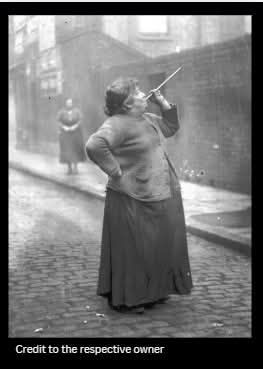In the 1930s, Mary Smith was one of the last “knocker-uppers” in the working-class East End of London. For a fee of six pence a week, she roamed the narrow streets at dawn, carrying a long pea-blower and a bag of dried peas. With factory chimneys already smoking, she aimed carefully at the upper windows of her regular customers: a soft plick—and the worker or seamstress knew it was time to get up and not miss the start of their shift.
Alarm clocks were simply too expensive or unreliable for many families, so they relied on a regular “wake-up service” like Mary’s. She often knew every house number and her customers’ various wake-up times by heart; some wanted to be woken at 5:00, others at 5:30. For a few extra pennies, she even worked on Sundays or took particularly early shifts. When someone canceled her service, they’d leave a note in the window so she wouldn’t waste peas.
With the arrival of cheap, battery-operated alarm clocks, the trade gradually lost its purpose, but Mary Smith remained in people’s memories as a symbol of a forgotten everyday culture: a woman who, with just a handful of dried peas, ensured punctual work routines across an entire street.
